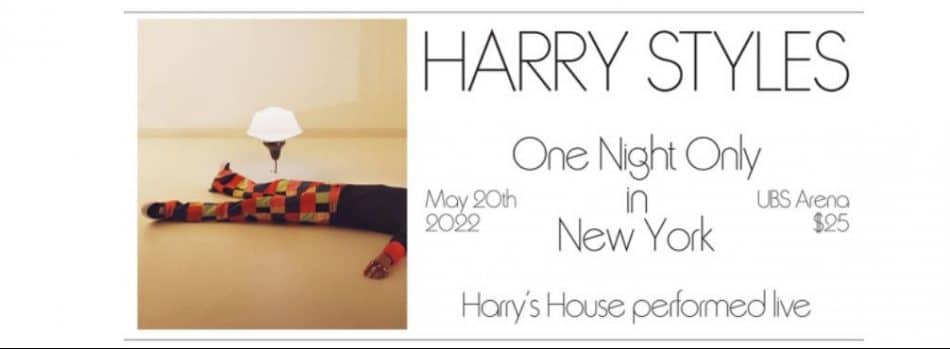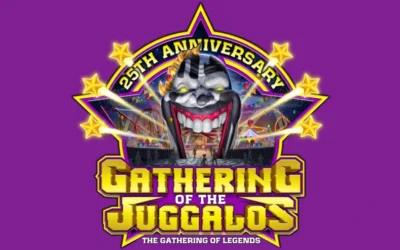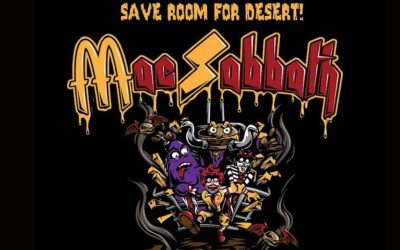Ticketmaster’s “Verified Fan” scheme caught another in a long series of black eyes this month, as fans took the internet to vent after tickets to Harry Styles’ “One Night Only” album release events in New York and London wound up on ticket resale marketplaces for thousands. The tickets had originally been sold for $25 each.
There is no question that tickets were going to be hot on the secondary market for the Harry Styles events – after all, UBS Arena has fewer than 20,000 seats at full capacity, and there were likely hundreds of thousands of fans (and a few ticket brokers) who were competing for them. But the use of “verified fan” and subsequent extra layer of defeat and humiliation for fans who failed to score passes illustrated once again the key problem with the Ticketmaster system – it is pretending to be something that it isn’t. But we’ll get to that later.
Complaints from jilted Harry Styles fans ran the gamut – from ardent supporters who weren’t “verified” in the first place, to others who got in, but failed to get tickets, to others who watched in horror when they saw the prices being asked on the secondary market that were more than 50x the initial purchase price from the event.
A sampling:
this is what the ono harry styles london show will look like by the looks of it since all the bots have took the tickets 🙂 #ticketmaster #onolondon #onoharrystyles #HarryStyles pic.twitter.com/hYSsRxVcJY
— alexandra ☁️ (@alexandrarosex_) May 10, 2022
So yeah. These are TOTALLY reasonable ticket prices for nose bleeds when the original tickets cost $25. Clearly the fans have no power over this. Who does? Because shit needs to change. #HarryStyles #HarrysHouse pic.twitter.com/Eg8mLA05GS
— Kimber 🍉 (@kimbertimberNYC) May 5, 2022
ticketmaster really said “we’re trying to keep it away from bots” then gave all the tickets to scalpers. fuck y’all. #HarryStyles #HarrysHouse #OneNightOnly
— skye IS GOING TO ONO!! (@goldenhab1t) May 5, 2022
ticketmaster not making me a verified fan even though I’ve been up harry’s ass for over a decade
me: pic.twitter.com/Z6TR6BF6h1— kayla 🏠 (@flickerkisses) May 5, 2022
fixed it lol
🏷 harry styles ono nyc may 20 presale ubs arena one night only long island hs waitlist ticketmaster verified fan #HarrysHouse pic.twitter.com/Fbbe2mwJNA
— Harry ONO🕯manifesting🕯 (@rw_9555) May 5, 2022
.@ticketmaster go to any resale site right now and lmk if you think ur little verified fan code worked
— soph 🧸 needs 2 ono tickets 🫶 (@harryssummersky) May 5, 2022
B.S. Edition
New York’s One Night Only sold out
To the *real* fans, the truly devout;
To esteemed Verified™
Tix were just twenty five—
Now they’re 2K, by Verified Touts.— larrylimericks (@larrylimericks) May 6, 2022
@Ticketmaster verified fan is such a joke. I got wait listed for tickets and all these “verified fans” who got a code are reselling these tickets for insane prices like wtf #HarrysHouse #harrystylesONO pic.twitter.com/UfgjuIa7eV
— Meghan Lynch (@Meg_Han_Solo22) May 5, 2022
.Thanks @Ticketmaster so that verified fan thing was brilliant ..for scalpers.. you put me on a waiting list aka BS list..essentially blocked me from buying a ticket put me on a waiting list so I can see them o. StubHub for 1k plus $.. sorry @Harry_Styles I tried. #harrystylesONO pic.twitter.com/WZimLv7nd1
— Olivia🌻 (@Oliviabklyn) May 5, 2022
You know what Ticketmaster, f you, I am a verified fan of @Harry_Styles I don’t care what you say
— Sarah Heavner (@saraheavner) May 5, 2022
Hey @Ticketmaster what the hell? Literally no one got tickets. The show is supposed to be $25 and the scalpers r selling them for at minimum $1000…. Soooo so much for a verified fan presale. Y’all suck. Ticketmaster is the woat
— Bella Cross (@BellaCross_) May 5, 2022
Verified Fan has become a common part of the ticket-buying experience. It has always promised fans that it’s core purpose is to box out ticket brokers and “bots” from purchasing large numbers of tickets to hot events. In theory, it uses an algorithm to determine whether or not someone is an actual fan, and then uses that information to decide who gets verified, and who gets waitlisted. Those verified are through the first gateway of the process, but aren’t promised anything other than a shot at the presale (or general sale, as Ticketmaster has increasingly convinced artists with high-profile tours or residencies to not even bother offering tickets to non-“verified” buyers).
This sets fans up for a double-letdown – they might get verified, or they might have a ticketing company decide they’re not worthy. And then they may or may not get tickets, inevitably seeing tickets on the secondary market for sale, which often had to have been purchased by those who were “verified” (or listed for sale directly on resale marketplaces by event promoters themselves, as is known to happen from time to time).
We’ve seen similar complaints throughout the history of Verified Fan, which has been around since around 2017. Olivia Rodrigo fans were mad in December when her Sour Tour went on sale. BTS fans were furious in October. Taylor Swift fans have frequently run into a wall with Verified Fan, even after her infamous use of the system to force them to purchase more of her merch to assist their chances of getting verified.
Why, if it is so widely despised and shown to rarely actually do what it says it does, would Verified Fan not only still exist, but be more and more frequently used by artists on Ticketmaster’s system? Because Verified Fan is all about user data, not ticket resale. A recent Sportico article dove into how central fan data has become to sports organizations monetization of their fan bases. Live events are no different – and Verified Fan gets Ticketmaster and its venue/event partners a treasure trove of user data – even if they don’t wind up being “verified” or buying tickets.
Mobile-Only tickets are the other side of the same coin – allowing access to enormous user data and maximizing event organizer control of all access to that information.
Within its terms and conditions and privacy policy, Ticketmaster’s right to consumer data is spelled out in detail. Data grabbed from consumers who either purchase or are transferred a ticket includes contact and billing information, age, race, gender, health information for accessibility purposes, and more. And it is sharable with third parties – including artists, promoters, teams, and sponsors for events consumers buy or are transferred tickets for. Once distributed, consumer data is subject to the privacy policies for those entities, and it is specifically mentioned that you may be sent marketing communications.
How much is this information worth to companies like Live Nation and its partners?
It is hard to say exactly how much a holistic picture of a fan is worth to a sports organization.
But Facebook’s average revenue per user (~$30) is a good starting point. https://t.co/A4hccngWGw
— JohnWallStreet (@HowieLongShort) May 10, 2022
Who knows if UBS Arena, Live Nation, Oak View Group, Ticketmaster, or anyone else with access to that treasure trove of data will see anything approaching those kinds of numbers for the users who signed up for the Harry Styles shows later this month. But anyone thinking that those companies are using programs like Verified Fan or mobile-only tickets to protect them from paying more for tickets than “face value” is missing most of the story.




